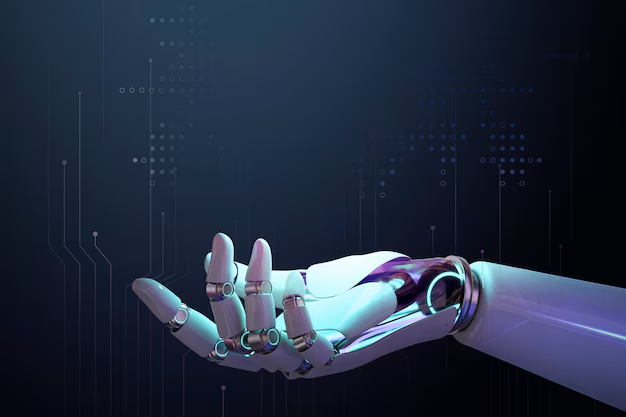Artificial Intelligence (AI) is rapidly changing how industries operate, making businesses more efficient and revolutionizing the way we work. With its ability to process huge amounts of data, recognize patterns, and make real-time decisions, AI is becoming a powerful tool across sectors like healthcare, finance, manufacturing, and education. As the technology advances, AI’s influence on modern industries continues to grow, presenting new opportunities and challenges.
AI in Healthcare: Revolutionizing Patient Care and Diagnosis
In healthcare, AI is making a big difference. AI-powered tools are helping doctors diagnose diseases faster and more accurately. For example, machine learning algorithms can analyze medical images like X-rays and MRIs to detect abnormalities that might be missed by the human eye. This has been particularly helpful in the early detection of serious conditions like cancer.
AI is also improving patient care. Wearable devices and health trackers now collect real-time data, such as heart rate or glucose levels, and send it to healthcare providers. This allows doctors to monitor patients remotely and intervene quickly if something goes wrong, reducing the need for frequent in-person visits. Additionally, AI is speeding up the development of new drugs, analyzing massive amounts of data to find promising compounds faster than traditional methods.
AI in Finance: Smarter Decisions and Stronger Security
AI is transforming the finance industry by improving decision-making and making services more secure. Financial institutions use AI to analyze market data, predict trends, and make better investment decisions. These AI algorithms can process and interpret vast amounts of information much faster than humans, leading to more accurate predictions.
Fraud detection is another area where AI is proving invaluable. AI models can quickly spot unusual patterns in transactions, alerting banks to potential fraud in real time. This helps protect customers and prevent financial loss. In addition, AI-driven chatbots are improving customer service by answering routine queries 24/7, enhancing efficiency for financial institutions.
AI in Manufacturing: Boosting Efficiency and Reducing Costs
Manufacturing industries are using AI to improve productivity and cut costs. Robots powered by AI can perform repetitive tasks faster and more precisely than humans. These robots help reduce errors and minimize the risk of accidents in the workplace. By taking on routine tasks, AI frees up human workers to focus on more complex and creative aspects of production, leading to increased efficiency.
AI also helps with predictive maintenance. Sensors on machines collect data and monitor their condition in real-time. When something seems off, AI predicts potential issues before they cause a breakdown. This approach helps businesses avoid costly downtime and repairs, making the production process smoother and more reliable.
AI in Education: Personalized Learning and Smarter Classrooms
In education, AI is helping create more personalized learning experiences. AI-powered platforms analyze a student’s strengths and weaknesses and adjust lessons accordingly. This allows students to learn at their own pace, improving their understanding of challenging subjects and boosting overall engagement.
AI also makes life easier for teachers. It can automate tasks like grading and tracking attendance, freeing up more time for educators to focus on teaching. AI systems can even help schools make data-driven decisions by identifying trends in student performance and suggesting areas for improvement.
Ethical Concerns and the Future of AI
While AI offers many benefits, it also raises important ethical concerns. One of the biggest worries is job displacement. As AI automates certain tasks, there is concern that some workers may lose their jobs. However, AI is also creating new opportunities in technology and data analysis, so there will be a shift in the types of jobs available.
Another issue is data privacy. AI systems often require access to large amounts of personal information. It’s essential for businesses to protect this data and ensure their AI models are transparent and fair. As AI technology continues to evolve, companies must remain responsible in how they use it.
Looking ahead, AI is expected to become even more integrated into industries. From autonomous vehicles to AI-powered smart cities, the possibilities are endless. To fully harness the power of AI, industries must embrace it responsibly, ensuring that its benefits are widespread while addressing the ethical challenges it presents.


